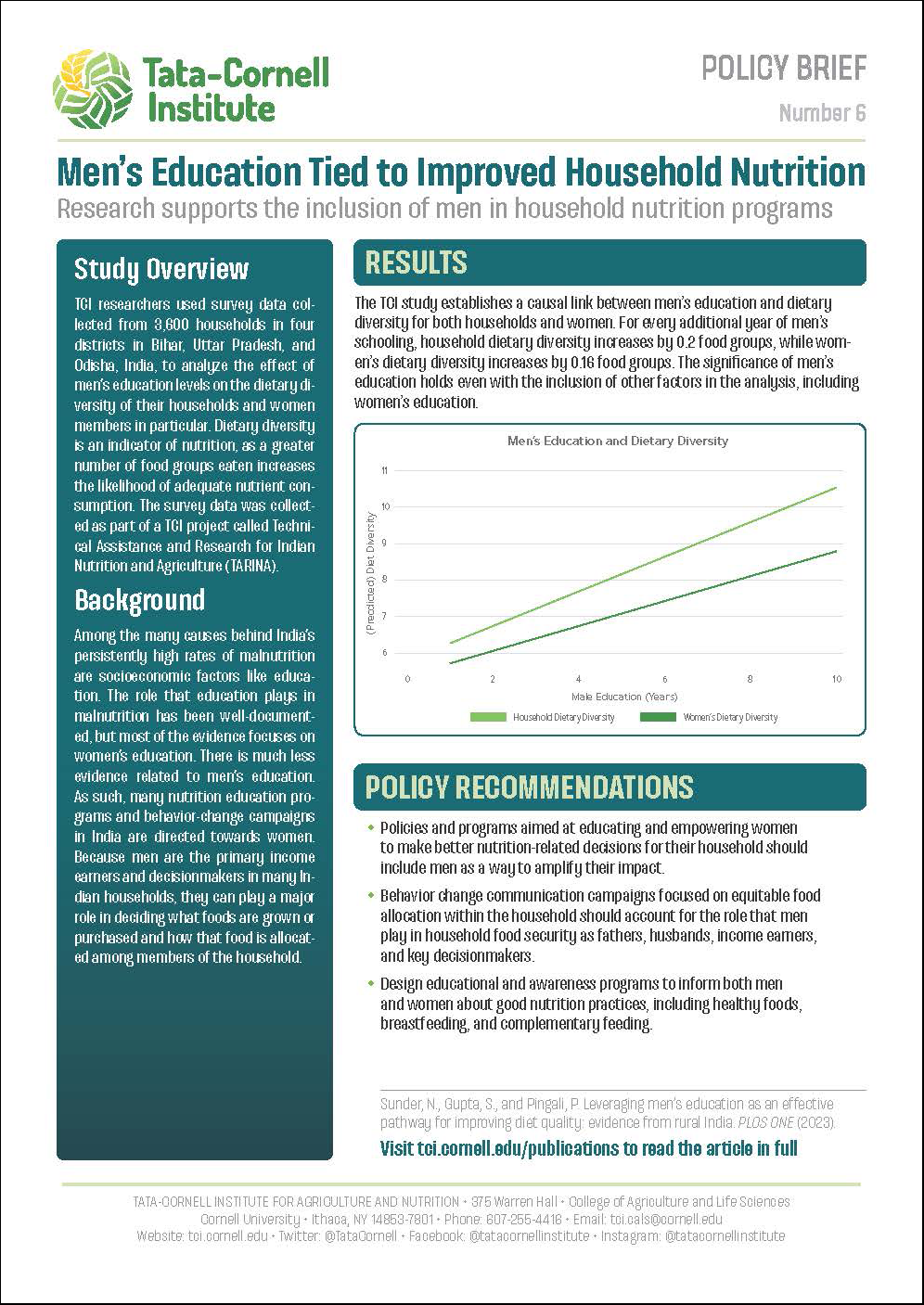Men’s Education Tied to Improved Household Nutrition
 This policy brief presents the findings of a TCI study assessing the impact of men’s education on household and women’s dietary diversity, an indicator of overall nutrition. Using survey data collected as part of the TARINA project, TCI researchers found that men’s education has a positive effect on both household and women’s dietary diversity.
This policy brief presents the findings of a TCI study assessing the impact of men’s education on household and women’s dietary diversity, an indicator of overall nutrition. Using survey data collected as part of the TARINA project, TCI researchers found that men’s education has a positive effect on both household and women’s dietary diversity.
Based on these results, TCI recommends that:
- Policies and programs aimed at educating and empowering women to make better nutrition-related decisions for their households should include men as a way to amplify their impact.
- Behavior change communication campaigns focused on equitable food allocation within the household should account for the role that men play in household food security as fathers, husbands, income earners, and key decisionmakers.
- Design educational and awareness programs to inform both men and women about good nutrition practices, including healthy foods, breastfeeding, and complementary feeding.

